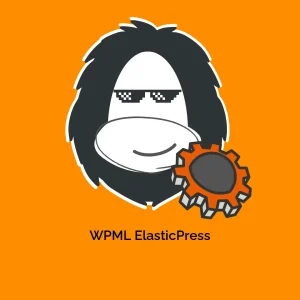The Concerns Around SQL Injection Vulnerabilities in WordPress Plugins
As we dive deeper into the world of web security, one major concern stands out: SQL injection vulnerabilities. A critical example to consider is the recent flaws uncovered in the Pressaholic Video Robot plugin for WordPress. This plugin, specifically version 1.20.0 and earlier, has been flagged for a significant SQL injection vulnerability, classified under the Common Vulnerabilities and Exposures (CVE) system as CVE-2024-52431. Understanding this flaw is essential for anyone involved in WordPress development or management.
Understanding SQL Injection Vulnerabilities
SQL injection, often abbreviated as SQLi, is a type of cyber-attack where an attacker can manipulate SQL queries by inserting or “injecting” malicious SQL code through unsanitized inputs. These vulnerabilities arise when an application uses user input to construct SQL commands without proper validation or sanitization. It exploits software weaknesses, potentially allowing unauthorized access to sensitive data, compromising the integrity of the application’s database, or even taking control of the server.
For instance, if a SQL query in a WordPress plugin does not adequately filter user inputs, an attacker might input SQL commands directly into a form field that was intended to accept only basic text. This could lead to the retrieval of sensitive data, such as user credentials or financial information, potentially affecting the confidentiality, integrity, and availability of that data.
The Specifics of the Pressaholic Video Robot Vulnerability
The vulnerability in the Pressaholic Video Robot plugin has a high CVSS (Common Vulnerability Scoring System) score of 8.2, indicating a critical risk. Essentially, this particular flaw can be exploited remotely without needing any authentication, making it especially dangerous for users of this plugin. Such ease of access for potential attackers underscores the urgency for developers and site administrators to address security flaws immediately and effectively.
The SQL injection issue allows attackers to manipulate SQL commands run by the plugin, which could lead to unauthorized data exposure or even database modifications. This is identified under the Common Weakness Enumeration (CWE) as CWE-89, which is the recognized standard for defining issues related to improper data handling in SQL commands.
Potential Impact of the Vulnerability
Given its nature, a successful SQL injection attack could severely compromise the website running the affected plugin. The potential impacts include:
- Confidentiality Risks: Unauthorized access to sensitive and private user data.
- Integrity Risks: Attackers could manipulate or corrupt existing data within the database.
- Availability Risks: By executing malicious commands, attackers could alter access rights, causing denials of service or making data permanently inaccessible.
Moreover, without any known mitigation strategies currently in place, users and website administrators must be vigilant about monitoring their installations of the plugin.
Exploitation and Countermeasures
Since the flaw allows for remote exploitation, it’s crucial to consider preventive measures. Although no official mitigation has been advised yet, the best course of action is to monitor platform updates and consider switching to safer, better-maintained plugins whenever possible.
For instance, users should regularly ensure that all plugins used in their WordPress installations are updated to the latest stable versions. They can also perform consistent security audits of their websites, examining not only plugin security but also the overall framework of their WordPress installations.
Moreover, employing further security practices, like utilizing web application firewalls (WAFs) or intrusion detection systems (IDS), can help shield against potential attacks. Properly encoding outputs, employing parameterized queries, and conducting thorough input validations are essential coding practices to prevent such vulnerabilities in future development.
Conclusion
As we see in the case of the Pressaholic Video Robot plugin, SQL injection vulnerabilities pose a significant threat to WordPress users. Understanding the implications of these vulnerabilities is monumental to fostering a more secure web environment. It emphasizes the need for developers to focus not only on functionality but also on security best practices throughout the development lifecycle.
Staying current with security advisories, implementing regular updates, and practicing diligent maintenance can make a world of difference in safeguarding data integrity and confidentiality. The potential consequences of SQL injections highlight the vital interplay between functionality, user accessibility, and, importantly, security in the realm of web development. Administrators are encouraged to assess their reliance on third-party plugins critically and remain proactive about the security posture of their WordPress applications.
WP Video Robot: Download it for Free
Yes indeed, downloading WP Video Robot Plugins for free is absolutely possible and legal.
Actually, even downloading a cracked WP Video Robot is law-abiding, as the license it is distributed under is the General Public License, and this license enables its free modification and resale.
Thus, there’s no reason to worry: If you were looking to buy WP Video Robot cheaply or, directly, to download WP Video Robot Plugins nulled to get it 100% free, on OrangoGPL, it’s possible legally and easily.
Download WP Video Robot GPL: The way for entrepreneurs just starting
It’s irrelevant what you call it: Discounts for WP Video Robot Plugins, download WP Video Robot Plugins GPL, download WP Video Robot without license or download WP Video Robot nulled.
It is totally legal and a necessity for every entrepreneur at the start of their journey.





Reviews
There are no reviews yet.